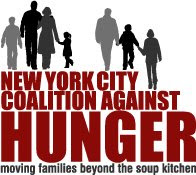 Consumers, medical professionals, and public health officials wasted no time reacting to the proposed “obesity tax” detailed in Governor Paterson’s 2009 Executive Budget. State officials claim that the 18% tax on non-diet sodas and fruit drinks with less than 70% juice would generate nearly $400 million a year in funds for health programs. The “obesity tax” could redefine the relationship between state health policy and consumer decision-making in potentially beneficial or harmful ways depending on who you ask.
Consumers, medical professionals, and public health officials wasted no time reacting to the proposed “obesity tax” detailed in Governor Paterson’s 2009 Executive Budget. State officials claim that the 18% tax on non-diet sodas and fruit drinks with less than 70% juice would generate nearly $400 million a year in funds for health programs. The “obesity tax” could redefine the relationship between state health policy and consumer decision-making in potentially beneficial or harmful ways depending on who you ask.Proponents of the tax claim that it could cut statewide obesity rates by 5%. Health professionals have cited the earlier cigarette tax as proof that hiking prices can result decreased consumption. Supporters claim that sugared beverages are devoid of health benefits and are therefore a good place to start when it comes to making consumers pay up for their indulgence. Said Elie Ward of The American Academy of Pediatrics: “soda and other sugar-sweetened drinks are the leading single contributor to obesity. Raising the price of this liquid candy will put children and teens on a path to a healthier diet."
New York Times Columnist Nicholas Kristof recently cited a 2005 study suggesting that every 10% increase on cigarette prices reduces overall smoking rates by 3% and teenage smoking rates by 7%. Health officials are expecting the tax to have a similarly strong effect on statewide rates of child and teen obesity, which have tripled in the past three decades.
Opponents, on the other hand, question if the proposed tax will be effective health policy. “Generally, taxing food doesn’t change long-term behaviors with respect to food choices,” said former president of the American Diatetic Association Connie B. Diekman. Some health experts have expressed concern that item-specific taxes will distract from comprehensive anti-obesity education.
Some food retailers like Javier Fuertes, the general manager of an East Harlem Fine Fare, believe the tax will disproportionately affect low-income New Yorkers. Though the budget also includes taxes that affect wealthy New Yorkers, including a tax on yachts and furs, the Governor continues to reject the “millionaire’s tax,” which would generate nearly ten times the revenue of the obesity tax.
Many consumers similarly doubt the rationale for the policy and posit that the tax is a money-making scheme rather than a serious attempt at behavior modification. Many New York City retailers further claim that soft drink would remain sure-fire products despite their increased cost. That’s good news for State coffers, but bad news if the tax is, as Paterson has stated, primarily aimed at improving New Yorkers’ health.
Tell us what you think about the obesity tax. Post your comments below and join the conversation!

1 comment:
Thanks Sheralle! And, as always, feel free to respond to postings as they go up. We'd love to hear from you!
Post a Comment